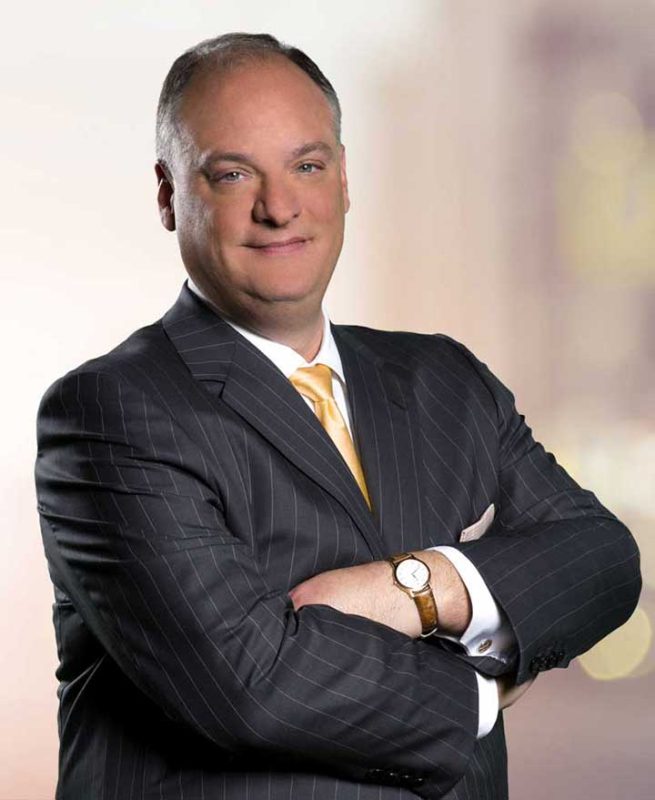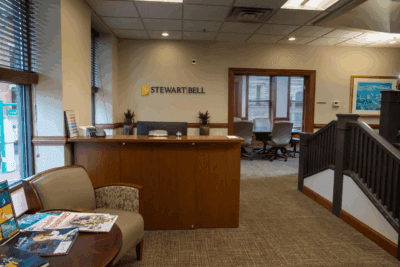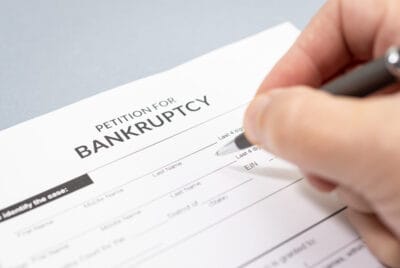
The Short Answer…
Nursing homes can be held liable for abuse when staff members, third-party caregivers, or administrators fail in their legal duty to protect vulnerable residents. This liability can arise from direct acts of abuse, neglectful practices like understaffing or improper training, or even from failures to act when abuse is suspected.
If your loved one has been harmed in a West Virginia nursing home, understanding who is legally responsible and how to build a strong case can help you successfully pursue justice and compensation. At Stewart Bell, PLLC, we are dedicated to protecting the rights of abused seniors and holding abusive facilities accountable.
Key Takeaways
- Nursing homes can be held liable for both direct and indirect abuse or neglect. This includes actions of staff, contractors, and even third parties under their supervision.
- Negligence is the most common basis for liability. This includes inadequate care, improper supervision, and failure to meet legal standards of care.
- Legal doctrines like respondeat superior apply. Nursing homes are often responsible for the wrongful actions of their employees, even if administrators were unaware of the abuse.
- Victims and their families may seek damages. Compensation can cover medical expenses, emotional suffering, and, in some cases, punitive damages.
- Working with a skilled attorney strengthens your case. Our West Virginia nursing home abuse lawyers provide compassionate guidance and aggressive representation in nursing home abuse claims.
What Is Nursing Home Abuse?
Nursing home abuse includes any intentional or negligent act that causes harm to a resident. Common forms of abuse include:
- Physical abuse (hitting, pushing, restraining)
- Emotional abuse (humiliation, threats, isolation)
- Neglect (dehydration, malnutrition, untreated infections)
- Sexual abuse (non-consensual contact, exploitation)
- Financial abuse (theft, forgery, unauthorized transactions)
Who Can Be Held Liable for Nursing Home Abuse?
Determining liability means identifying who had a legal and ethical duty to care for the resident and whether their actions or inaction breached that duty. In some cases, multiple parties may share responsibility for the abuse or neglect that occurred.
The Nursing Home Itself
Facilities can be held directly liable for systemic failures such as understaffing, poor hiring practices, or failing to implement and enforce safety protocols. Additionally, under the legal principle of vicarious liability, the nursing home may be responsible for any abusive or neglectful conduct committed by employees acting within the scope of their job duties.
Staff Members
Individuals such as nurses, aides, or custodians who directly perpetrate abuse—or who fail to intervene or report suspected abuse—can be personally held liable. Staff members are often the front line of care and play a critical role in preventing or contributing to harm.
Third-Party Contractors
Facilities may hire outside personnel through staffing agencies, including temporary nurses or rehabilitation specialists. If these individuals engage in abuse or neglect, they and their employers could be held liable, particularly if the nursing home failed to properly vet, train, or supervise them.
Employers of Caregivers
In some cases, residents receive care from private-duty caregivers not employed by the facility. If such individuals cause harm, their direct employer (e.g., a home care agency) may share responsibility, especially if they lacked training or had a known history of misconduct.
Administrators or Management Companies
Corporate ownership or management groups that oversee multiple nursing homes may be liable if corporate policies, cost-cutting measures, or lack of oversight contributed to an environment where abuse or neglect occurred. For example, prioritizing profits over adequate staffing levels can lead directly to harmful conditions.
Legal Theories That Support Nursing Home Abuse Liability Claims
When families seek justice after a nursing home resident has suffered abuse, identifying how the facility or its staff failed is just as important as showing what went wrong. Nursing homes are bound by both duty-based standards of care and contractual and regulatory obligations. Several legal theories can be used to establish liability, depending on the specific facts of the case.
1. Negligence
At the core of most nursing home abuse lawsuits is negligence, which occurs when a facility fails to uphold its basic duty of care. This may include failing to prevent falls, neglecting hygiene needs, ignoring medical issues, or allowing residents to wander unsupervised. If a reasonably careful facility would have acted differently under the same circumstances, and that failure caused harm, negligence can be proven.
2. Negligent Hiring or Retention
Nursing homes have a responsibility to screen potential employees thoroughly and avoid hiring individuals with a history of abusive behavior or criminal activity. If a facility hires or continues to employ someone known to pose a risk to residents and that person later causes harm, the nursing home may be liable for negligent hiring or retention.
3. Negligent Training and Supervision
Proper training ensures staff know how to assist residents safely, administer medication, respond to medical needs, and de-escalate emotional situations. When staff aren’t adequately trained or when supervisors ignore misconduct or warning signs, residents face a significantly higher risk of abuse. A facility may be legally responsible for any harm caused due to this oversight.
4. Understaffing
Many instances of nursing home neglect stem from chronic understaffing, where there simply aren’t enough caregivers to meet residents’ needs. This can lead to missed meals, unaddressed injuries, delayed medications, and even unmonitored abuse. Courts may consider this a form of administrative negligence or deliberate cost-cutting that compromises resident safety.
5. Respondeat Superior (Vicarious Liability)
Under this legal doctrine, a facility can be held liable for wrongful acts committed by its employees while they’re performing job-related duties, even if supervisors were unaware of the abuse. This concept ensures that nursing homes cannot avoid responsibility simply by blaming individual workers; instead, they are treated as accountable for the actions of their workforce.
6. Negligent Selection or Maintenance of Equipment
Facilities must ensure that equipment such as beds, wheelchairs, call buttons, oxygen machines, and lifts are safe, well-maintained, and appropriate for each resident’s condition. If a resident is injured because of faulty or outdated equipment, or because staff used the wrong tools for a task, the nursing home may be liable for negligent selection or maintenance of that equipment.
7. Breach of Contract
When a resident or their family signs a care agreement with a nursing home, the facility becomes contractually obligated to provide a certain standard of care. If the nursing home fails to deliver on those promises—such as providing safe living conditions, proper nutrition, or medical support—they may be sued for breach of contract in addition to other legal claims.
8. Violation of Federal or State Regulations
Nursing homes are subject to strict regulations under laws such as the Federal Nursing Home Reform Act (OBRA) and corresponding West Virginia licensing standards. These laws set minimum standards for staffing, training, cleanliness, safety, and resident rights. A violation of these laws can not only result in citations or fines but also serve as evidence of liability in a civil abuse case.
These legal theories form the backbone of most successful nursing home abuse lawsuits. While each case is unique, identifying how the responsible parties failed in their duty and connecting that failure to the harm suffered is key to establishing liability. At Stewart Bell, PLLC, we understand the nuances of these claims and are committed to helping families across West Virginia pursue the justice their loved ones deserve.
Proving Liability in a Nursing Home Abuse Case
To successfully prove liability in a nursing home abuse case, you must demonstrate how the abuse occurred, who is responsible, and how your loved one suffered as a result. This process can be complex, especially when the facility denies responsibility or tries to shift the blame.
Establishing liability means showing that the nursing home failed in its duty and that this failure caused actual harm. This involves 4 key elements:
- Duty of Care: The nursing home had a legal obligation to provide safe, competent care to the resident. This includes meeting basic needs, protecting against foreseeable harm, and ensuring a clean, supportive environment.
- Breach of Duty: The facility or its employees failed to meet the accepted standard of care. This could involve neglecting to monitor residents, ignoring complaints of mistreatment, or allowing unqualified staff to provide care.
- Causation: You must show that the nursing home’s breach of duty was the direct cause of your loved one’s injury or suffering. Medical records, witness testimony, and expert evaluations can help establish this link.
- Damages: The resident must have suffered measurable harm (physical injuries, emotional trauma, financial loss, or a decline in health) as a result of the abuse or neglect.
Establishing these elements often requires a thorough investigation, careful documentation, and the support of legal and medical experts. At Stewart Bell, PLLC, we work closely with families to gather the facts, secure records, and present a compelling case on their behalf. Our goal is to hold negligent nursing homes fully accountable and secure the compensation your loved one may be owed. Contact us today for a free consultation—we’re here to listen, investigate, and fight for justice.
Nursing Home Abuse Liability FAQs
Who can sue for nursing home abuse in West Virginia?
In West Virginia, a nursing home abuse lawsuit can typically be filed by the abused resident, their legal guardian, or a close family member. In the event of a resident’s death, the personal representative of the estate may bring a wrongful death claim on behalf of the surviving family members.
How difficult is it to sue a nursing home?
While suing a nursing home can be legally complex, it is certainly possible with the help of an experienced attorney. Challenges often include proving the abuse occurred, accessing medical records, navigating state and federal healthcare laws, and countering the facility’s legal defenses. However, a skilled nursing home abuse lawyer can gather evidence, work with expert witnesses, and build a strong case that demonstrates the facility’s liability, making the process more manageable for families during such a difficult time.
What should I do if I suspect nursing home abuse?
If you suspect your loved one is being abused in their nursing home, take immediate action to ensure their safety. Start by documenting any signs of abuse (such as bruises, poor hygiene, or sudden behavioral changes). Report your concerns to the nursing home administrator and file a formal complaint with the West Virginia Department of Health and Human Resources. Consult an attorney who can guide you through your legal options and help ensure the abuse is properly investigated.
What damages are available in a nursing home abuse case?
Victims of nursing home abuse and their families may be entitled to a range of damages. These can include economic damages (such as medical bills and the cost of relocating to a new facility), non-economic damages (such as pain and suffering, emotional distress, and loss of enjoyment of life), and, in some instances, punitive damages meant to punish the facility for especially egregious misconduct. The specific amount and type of compensation will depend on the details and severity of the case.
Are nursing homes liable for falls?
Yes, nursing homes can be held liable for resident falls, especially if the fall resulted from negligence or inadequate supervision. If a resident falls due to unsafe conditions, lack of staff, or failure to follow a care plan, the nursing home may be found negligent and responsible for the resulting injuries.
Trust Stewart Bell to Hold a Nursing Home Liable
At Stewart Bell, PLLC, we understand the devastating impact nursing home abuse can have on victims and their families. When your loved one has suffered due to the misconduct of a facility, you need a legal team that knows how to hold them accountable and demand justice. With over 120 years of combined experience advocating for nursing home abuse victims in Charleston, Dunbar, Huntington, and across West Virginia, we have the knowledge, resources, and passion needed to take on abusive nursing homes and win.
Our dedicated team:
- Provides free, no-obligation case reviews so families can understand their options without financial risk
- Handles the entire legal process with compassion, transparency, and skill, easing your burden during a difficult time
- Conducts in-depth investigations to uncover liability, including staff misconduct, policy violations, and regulatory failures
- Fights aggressively to hold facilities and other responsible parties fully accountable under West Virginia law
- Works on a contingency fee basis, so you pay nothing unless we recover compensation for you
Our team has helped countless families successfully pursue claims for abuse, and we’re ready to help you too. Nursing homes must be held responsible when they fail in their duty of care and we’ll stand by your side every step of the way to make sure they are.
You and your loved one deserve dignity, safety, and justice. Let Stewart Bell, PLLC be your trusted ally in the fight to hold negligent nursing homes liable. Contact us today for a free consultation.





